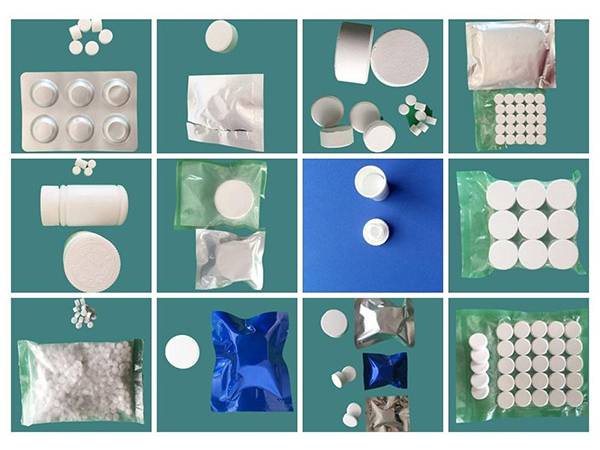



Sodium Hydroxide Pellets CAS Number Information and Safety Guidelines
Sodium Hydroxide Pellets A Comprehensive Overview
Sodium hydroxide, commonly known as lye or caustic soda, is a highly versatile chemical compound with the formula NaOH. It is widely used in various industries and has a significant impact on numerous processes, primarily due to its strong alkaline properties. With a CAS number of 1310-73-2, sodium hydroxide is recognized for its role in chemical manufacturing, food processing, and water treatment, among many other applications.
Chemical Properties and Production
Sodium hydroxide is an ionic compound consisting of sodium (Na^+) and hydroxide (OH^-) ions. It appears as a white, crystalline solid, often in pellet form, which makes it easy to handle and store. Sodium hydroxide is hygroscopic, meaning it can absorb moisture from the air, which is an important factor to consider during storage and handling. It is soluble in water, and the dissolution process is highly exothermic, releasing heat and making the solution alkaline.
The production of sodium hydroxide primarily occurs through two methods the chloralkali process, which involves the electrolytic separation of sodium chloride (table salt) in water, and the lime-soda process, where sodium carbonate is reacted with calcium hydroxide. The chloralkali process is the most common and efficient method, leading to the simultaneous production of chlorine gas and hydrogen gas along with sodium hydroxide. This method highlights the interconnectedness of various chemical processes in the industry.
Applications of Sodium Hydroxide Pellets
The multifaceted uses of sodium hydroxide pellets span several industries
. Here are some of the most notable applications1. Chemical Manufacturing Sodium hydroxide is a fundamental raw material in the production of various chemicals, including fertilizers, plastics, and detergents. It acts as a pH regulator and a reagent in many reactions, facilitating the synthesis of more complex compounds.
sodium hydroxide pellets cas number

2. Food Processing In the food industry, sodium hydroxide is used as a food additive to regulate acidity and improve texture. It is commonly employed in the pretreatment of olives, the production of soft drinks, and in the process of making foods like pretzels. However, it's worth noting that safety standards must be strictly followed, as sodium hydroxide is caustic and must be handled with care.
3. Water Treatment Sodium hydroxide plays a critical role in water purification processes. It is used to increase the pH of acidic water, aiding in the precipitation of heavy metals and enhancing the efficacy of water treatment chemicals. The strong alkaline nature of sodium hydroxide helps neutralize acidic pollutants, ensuring safer drinking water for communities.
4. Pulp and Paper Industry In the pulp and paper industry, sodium hydroxide is used during the pulping process to break down lignin and separate cellulose fibers. This process is essential for producing high-quality paper products, making sodium hydroxide a vital component in this sector.
5. Batteries and Electronics Sodium hydroxide is also used in the manufacturing of batteries, particularly in alkaline batteries. It serves as an electrolyte, allowing the flow of ions needed for energy storage and release. Similarly, in electronics, it is utilized in the production of semiconductors and circuit boards.
Safety and Handling Considerations
Despite its extensive applications, it is imperative to adhere to safety protocols when handling sodium hydroxide pellets. Due to its caustic nature, exposure can lead to severe skin burns, eye damage, and respiratory issues if inhaled. Personal protective equipment (PPE), including gloves, goggles, and face shields, is essential when working with this chemical. Proper storage in a cool, dry place away from incompatible materials is crucial to prevent accidents and ensure safety.
Conclusion
Sodium hydroxide pellets, with their diverse applications and significant industrial relevance, are crucial to modern manufacturing and processing techniques. Understanding the properties, uses, and safety measures associated with this compound is vital for professionals working in chemistry, food service, water treatment, and other related fields. As industries continue to evolve and prioritize efficiency and safety, sodium hydroxide remains a key player in chemical innovation and production.
-
Why Sodium Persulfate Is Everywhere NowNewsJul.07,2025
-
Why Polyacrylamide Is in High DemandNewsJul.07,2025
-
Understanding Paint Chemicals and Their ApplicationsNewsJul.07,2025
-
Smart Use Of Mining ChemicalsNewsJul.07,2025
-
Practical Uses of Potassium MonopersulfateNewsJul.07,2025
-
Agrochemicals In Real FarmingNewsJul.07,2025
-
Sodium Chlorite Hot UsesNewsJul.01,2025










